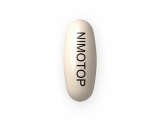Amoxicillin potassium clavulanate
Are you struggling with an infection that just won't go away? Do you need an antibiotic that is powerful and effective? Look no further than amoxicillin potassium clavulanate!
This antibiotic is a combination of two drugs – amoxicillin and clavulanate potassium – that work together to fight off a wide range of bacterial infections. Amoxicillin works to kill the bacteria, while clavulanate potassium boosts its effectiveness and helps prevent resistance.
There are many uses for amoxicillin potassium clavulanate, including treating various types of respiratory infections, skin infections, urinary tract infections, and more. It is also often used for dental infections.
While this antibiotic can be extremely helpful, it is important to be aware of potential side effects. The most common side effects include diarrhea, nausea, vomiting, and skin rash. However, these side effects are usually mild and go away on their own.
If you are prescribed amoxicillin potassium clavulanate, be sure to follow your doctor's instructions carefully and take the full course of treatment. This will help ensure that the infection is fully treated and does not come back.
Don't let infections hold you back – try amoxicillin potassium clavulanate today and get back to living your life to the fullest!
What is Amoxicillin Potassium Clavulanate?
Overview
Amoxicillin Potassium Clavulanate is a combination of two antibiotics: Amoxicillin and Clavulanate potassium. This medication is used for treating various bacterial infections such as bronchitis, pneumonia, urinary tract infections, and joint infections.
How does it work?
Amoxicillin works by stopping the growth of bacteria, while Clavulanate potassium enhances the effectiveness of Amoxicillin against certain bacteria that are resistant to it.
Important information
- It's important to take Amoxicillin Potassium Clavulanate as prescribed, even if you feel better before you're finished taking it.
- Do not take Amoxicillin Potassium Clavulanate if you're allergic to penicillin or if you've had a severe allergic reaction to any other antibiotic.
- Common side effects of Amoxicillin Potassium Clavulanate include diarrhea, nausea, vomiting, and rash. Contact your doctor if you experience severe side effects such as severe diarrhea or difficulty breathing.
Dosage
The dosage of Amoxicillin Potassium Clavulanate depends on the condition being treated, your age, weight, and medical history. It's important to follow your doctor's instructions carefully. The medication is usually taken orally with a meal to prevent stomach upset.
| Adult Dosage | Pediatric Dosage |
| 500mg/125mg every 8 hours | Dosage varies by weight and age. Consult with your pediatrician for the appropriate dosage. |
Overall, Amoxicillin Potassium Clavulanate is a safe and effective antibiotic for treating bacterial infections. However, it's important to follow your doctor's instructions and report any severe side effects.
Uses
Bacterial Infections
Amoxicillin potassium clavulanate is primarily used to treat bacterial infections caused by susceptible organisms. It is commonly prescribed for respiratory tract infections, such as pneumonia and bronchitis, as well as skin and soft tissue infections, urinary tract infections, and dental infections.
Prevention of Infection
In some cases, amoxicillin potassium clavulanate is also used as a prophylactic (preventative) treatment to prevent infections from occurring after surgery. It may also be prescribed to prevent certain infections in people with weakened immune systems, such as those with HIV or undergoing chemotherapy.
Lyme Disease
Amoxicillin potassium clavulanate is sometimes used to treat Lyme disease, a bacterial infection transmitted to humans by ticks. It is most effective in the early stages of the disease and is usually given for a 14- to 21-day course of treatment.
Ear Infections
For children with acute otitis media (middle ear infection), amoxicillin potassium clavulanate may be prescribed as a first-line treatment. It is effective against the most common bacteria that cause ear infections in children.
Sinus Infections
Amoxicillin potassium clavulanate may also be used to treat sinus infections caused by susceptible bacteria. It is often prescribed for people with acute bacterial sinusitis who have not improved with other treatments.
Note: Always follow your doctor's instructions on how to use this medication and complete the full course of treatment, even if you start to feel better. Stopping treatment early can lead to the infection returning or worsening.
What Conditions Can Amoxicillin Potassium Clavulanate Treat?
Bacterial Infections
Amoxicillin potassium clavulanate is a combination medication that is commonly used to treat bacterial infections such as respiratory tract infections, urinary tract infections, skin infections, and dental infections. This drug helps to eliminate the bacteria that cause these infections and prevent them from spreading further.
Sinus Infections
Amoxicillin potassium clavulanate is also effective in treating sinus infections. Sinus infections can cause inflammation and buildup of mucus in the sinuses, leading to symptoms such as headaches, nasal congestion, and facial pain. Amoxicillin potassium clavulanate helps to reduce inflammation and clear the sinuses of mucus, relieving these symptoms.
Ear Infections
Ear infections can be caused by different types of bacteria and can be especially common in children. Amoxicillin potassium clavulanate is commonly used to treat ear infections in both adults and children. This medication helps to clear the infection and relieve symptoms such as ear pain, fever, and difficulty hearing.
Stomach Ulcers
In addition to treating bacterial infections, amoxicillin potassium clavulanate can also be used to treat stomach ulcers caused by the bacteria Helicobacter pylori. This medication helps to eliminate the bacteria and heal the ulcer, reducing symptoms such as abdominal pain and nausea.
Skin and Soft Tissue Infections
Amoxicillin potassium clavulanate is also used to treat skin and soft tissue infections like cellulitis. This condition is caused by bacteria that enter through an opening in the skin, and the medication helps to clear it up and reduce inflammation. If left untreated, cellulitis can lead to serious complications.
Conclusion
Overall, amoxicillin potassium clavulanate is a versatile medication that can be used to treat various bacterial infections. If you think you have a bacterial infection, consult with your healthcare provider to determine if amoxicillin potassium clavulanate is the right medication for you.
Side Effects
Common side effects
- Nausea and vomiting
- Diarrhea
- Headache
- Rash
- Insomnia
- Abdominal pain
These side effects are usually mild and go away on their own. If they persist or worsen, contact your doctor.
Serious side effects
- Allergic reactions such as hives, difficulty breathing, and swelling of the face and throat.
- Severe diarrhea
- Yellowing of the skin or eyes
- Dark urine
- Unusual bleeding or bruising
If you experience any of these serious side effects, seek medical attention immediately.
Drug interactions
Amoxicillin potassium clavulanate may interact with other medications such as oral contraceptives, blood thinners, and methotrexate. Inform your doctor before taking any new medications.
Precautions
- Avoid taking amoxicillin potassium clavulanate if you have a history of liver problems or jaundice.
- Do not take if you are allergic to penicillins or cephalosporins.
- Inform your doctor if you have a history of gastrointestinal problems such as colitis before taking this medication.
Always follow your doctor's instructions and inform them of any changes in your health or medication regimen.
What Are the Side Effects of Amoxicillin Potassium Clavulanate?
Common Side Effects
Some common side effects of amoxicillin potassium clavulanate include diarrhea, nausea, vomiting, and stomach pain. In some cases, these symptoms can be mild and will go away on their own. However, if you experience severe stomach pain, blood in your stool, or persistent diarrhea, you should contact your doctor immediately.
Allergic Reactions
In rare cases, amoxicillin potassium clavulanate may cause an allergic reaction. Symptoms of an allergic reaction include rash, hives, itching, swelling of the face, tongue, or throat, and difficulty breathing. If you experience any of these symptoms, seek medical attention immediately.
Other Side Effects
Other possible side effects of amoxicillin potassium clavulanate include vaginal yeast infections, headache, dizziness, and insomnia. If you experience any of these symptoms, talk to your doctor to determine the best course of action.
Precautions
Before taking amoxicillin potassium clavulanate, it is important to tell your doctor about any other medications or supplements you are taking. This will help minimize the risk of any potential drug interactions. Additionally, be sure to let your doctor know if you have any underlying medical conditions, including liver or kidney disease, asthma, or a history of allergies.
To minimize the risk of side effects, it is important to take amoxicillin potassium clavulanate exactly as directed by your doctor. This means taking the medication at the same time each day and not stopping the medication even if you start to feel better. If you have any questions or concerns about taking amoxicillin potassium clavulanate, talk to your doctor.
Dosage
Adults
The recommended adult dosage of amoxicillin-potassium clavulanate depends on the severity of the infection and the patient's kidney function. For mild to moderate infections, the usual dose is 875 mg/125 mg every 12 hours or 500 mg/125 mg every 8 hours. For more severe infections, the dose can be increased to 2000 mg/125 mg every 12 hours.
Children
The dosage of amoxicillin-potassium clavulanate for children depends on the child's weight. The usual recommended dose is 45 mg/kg/day (based on the amoxicillin component) divided into two doses for 10 days. For severe infections, the dose can be increased to 90 mg/kg/day divided into two doses for 10 days.
Elderly
The dosage of amoxicillin-potassium clavulanate should be adjusted for elderly patients with decreased kidney function. The dose may need to be decreased or dosing interval increased to prevent accumulation of the drug.
Renal Impairment
If the patient has moderate to severe kidney impairment, the dosage of amoxicillin-potassium clavulanate should be adjusted. The dose may need to be decreased or the dosing interval increased depending on the degree of renal impairment.
How Should You Take Amoxicillin Potassium Clavulanate?
Follow Your Doctor's Instructions
The dosage and duration of treatment with Amoxicillin Potassium Clavulanate will depend on the type and severity of your infection. It is important to follow your doctor's instructions carefully and to complete the full course of treatment, even if you start feeling better before the medication is finished.
Take the Medication with Food
Amoxicillin Potassium Clavulanate should be taken with food, as this will help improve absorption and reduce the risk of upset stomach. If you forget to take a dose, take it as soon as you remember. However, if it is almost time for your next dose, skip the missed dose and continue with your regular dosing schedule.
Do Not Crush or Chew the Tablets
It is important to swallow the tablets whole, without crushing or chewing them. If you have difficulty swallowing tablets, speak to your doctor or pharmacist to see if an alternative form of the medication is available.
Store the Medication Properly
Amoxicillin Potassium Clavulanate should be stored at room temperature, away from direct sunlight and moisture. Keep the medication out of reach of children and pets. Do not use the medication after the expiry date on the packaging.
Final Thoughts
Amoxicillin Potassium Clavulanate is a powerful antibiotic medication that can be used to treat a variety of bacterial infections. It is important to take the medication as prescribed and to follow your doctor's instructions carefully to ensure the best possible outcome. Speak to your doctor or pharmacist if you have any questions or concerns about taking this medication.
Precautions
Allergic Reactions
If you are allergic to Amoxicillin Potassium Clavulanate or any other penicillin antibiotics, make sure to inform your doctor before starting the medication. Allergic reactions can lead to life-threatening symptoms like difficulty in breathing, swelling of the face, lips, tongue, or throat, and severe rash or hives.
Liver and Kidney Problems
If you have a history of liver or kidney disease, you must inform your doctor before starting the medication. Amoxicillin Potassium Clavulanate is excreted from the body through the liver and kidneys, and any impairment in these organs can affect its elimination, leading to drug accumulation and toxicity.
Breastfeeding and Pregnancy
Amoxicillin Potassium Clavulanate is considered safe during pregnancy and breastfeeding, but you must always consult your doctor before taking any medication. They will evaluate the benefits and risks of the medication and advise you accordingly.
Interactions with other Medications
Amoxicillin Potassium Clavulanate can interact with other medications and cause harmful side effects. Inform your doctor about all the prescription and non-prescription medications, vitamins, and herbal supplements that you are taking to avoid any potential interaction.
- Do not take Amoxicillin Potassium Clavulanate with anticoagulant medications, as they can increase the risk of bleeding.
- Do not take Amoxicillin Potassium Clavulanate with methotrexate, as it can increase the blood levels of methotrexate and cause toxicity.
Dosage and Duration
Take Amoxicillin Potassium Clavulanate according to the prescribed dosage and duration. Do not stop the medication before completing the prescribed course, even if you feel better. Stopping the medication prematurely can lead to incomplete eradication of the infection and can also increase the risk of antibiotic resistance.
What Should You Know Before Taking Amoxicillin Potassium Clavulanate?
1. Understand the Purpose
Amoxicillin Potassium Clavulanate is a combination antibiotic used to treat respiratory, skin, urinary tract and ear infections. It works by blocking the growth of bacteria in the body.
2. Follow Dosage Instructions
It is important to follow the dosage instructions given by your doctor. Do not change the dose or stop taking the medication without consulting your doctor first. If you miss a dose, take it as soon as possible. If it is closer to your next dose, skip the missed dose and continue with your regular schedule.
3. Know the Possible Side Effects
Like all medications, Amoxicillin Potassium Clavulanate may cause side effects. The most common side effects include diarrhea, stomach upset, nausea, and vomiting. If you experience severe side effects such as rashes, hives, difficulty breathing or swelling, seek immediate medical attention.
4. Notify Your Doctor
Inform your doctor of any pre-existing medical conditions, allergies, or any other medication you are currently taking to be certain that Amoxicillin Potassium Clavulanate is safe for you to use.
5. Store Properly
Store Amoxicillin Potassium Clavulanate at room temperature, away from moisture and heat. Keep it out of reach of children.
6. Complete the Full Course
Make sure to complete the full course of Amoxicillin Potassium Clavulanate even if you start feeling better. Stopping before the prescribed course can result in bacteria becoming resistant to the antibiotic.
- Important note: This information is for informational purposes only and should not be used to replace the advice and care of a qualified healthcare professional. Always consult with your doctor or pharmacist before starting any medication.
Follow us on Twitter @Pharmaceuticals #Pharmacy
Subscribe on YouTube @PharmaceuticalsYouTube





Be the first to comment on "Amoxicillin potassium clavulanate"